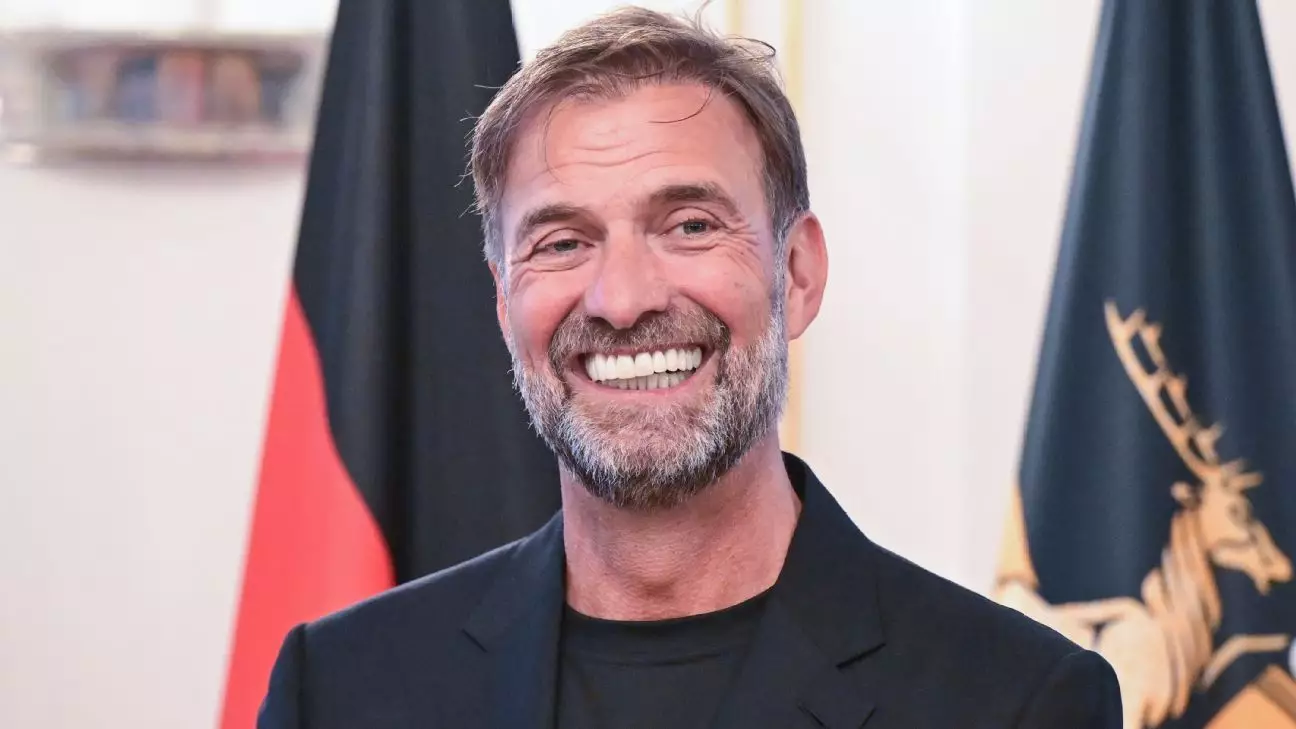Jürgen Klopp, the iconic former manager of Liverpool FC, has embarked on a new journey, leaving behind the high-pressure world of coaching to assume the position of head of global soccer for the Red Bull Group. This role signifies not merely a transition but a strategic pivot in Klopp’s storied football career. Appointed by the Red Bull organization, which encompasses multiple renowned clubs globally, including RB Leipzig, RB Salzburg, and New York Red Bulls, Klopp, who has long been associated with passion-filled matchday experiences, will now adopt a markedly different perspective as he dons a suit instead of his trademark tracksuit.
The Red Bull Group’s expansive vision for soccer development is matched by Klopp’s extensive experience in coaching. One of his primary responsibilities will be to develop a strategic vision for Red Bull’s football operations, along with mentoring coaches across various clubs in their network. His adept understanding of the game and profound insight gained from managing elite teams should facilitate the identification and nurturing of upcoming football talent through a robust scouting system. This undertaking is a significant shift; Klopp, the motivator on the touchline, is now the architect of a larger organizational framework that extends beyond single matches.
Yet, even as he considers this new dimension, it is difficult to shake off the anticipation surrounding his potential return to the pitch. Reports suggest that Klopp has negotiated a release clause enabling him to take over the Germany national team whenever the opportunity arises. With the 2026 World Cup looming in Canada, Mexico, and the United States, it begs the question: what might Klopp’s tenure at Red Bull mean for his coaching aspirations going forward?
While Klopp has undoubtedly established himself in a coaching capacity that is synonymous with ardor and immediate player interaction, steering an organization from the boardroom is a different ball game altogether. Many elite players, such as Karl-Heinz Rummenigge and Michael Zorc, transitioned smoothly into corporate roles post-career; however, Klopp’s move comes after an impressive two-decade managerial career. The pressure he will face in his new position will likely be immense, particularly because he is walking into a sphere where he historically thrived as a decision-maker on the touchline rather than as a boardroom executive.
Indeed, one cannot ignore the stark contrast in responsibilities. As a manager, his main focus was shaping the squad’s performance and creating a competitive edge on the grass. As a director, he must grapple with decision-making complexities that involve balancing disparate interests, resource allocations, and the potential impacts of hiring and firing coaches—a facet of football that he has always maintained a distance from.
Klopp’s hiatus from footballing duties allows for personal reflection as well. Following his departure from Liverpool, he expressed a desire for family time, indicating that coaching at such a demanding level had taken a toll on his mental and physical well-being. His interim break was a necessary pause, allowing him to recharge before plunging into another formidable role. But in a world where change is the only constant, it seems his return via Red Bull papers over the cracks of a deeper yearning to ensure he remains integral to the sport’s evolution, while still holding on to personal aspirations.
While it seems unlikely he will take on another intense club role, one cannot dismiss the idea of transitioning into national team management. Any vacancy that arises, particularly within the German national team, could entice him back into the coaching fray, albeit under different circumstances than those he left behind.
As Klopp prepares to step into his new role with Red Bull in January 2025, the footballing world watches eagerly. His decision to lead from the boardroom represents both a culmination of his previous managerial experiences and a test of adaptability to a new atmosphere.
While he may find the role of overseeing a global network of teams rewarding, there’s a lingering sentiment that the touchline will eventually lure him back. Considering his track record and sheer love for the game, Klopp’s narrative with Red Bull may very well serve as a prologue to an even richer chapter ahead—perhaps at the helm of the German national team or in another granular capacity within the coaching realm. His journey isn’t merely about embracing the change but rather navigating the tides of professional football as an ever-evolving entity. Whether it’s a short detour or a calibrated long-term role remains to be seen, but Klopp’s footprint in the beautiful game is far from over.

